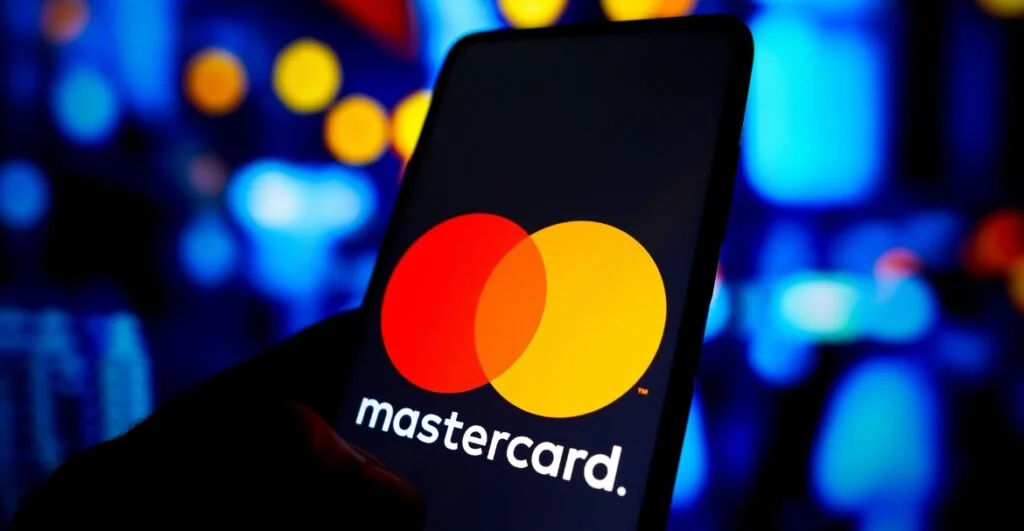Mastercard is working with self-custody wallet firms like MetaMask and Ledger to offer crypto card programs that connect Web2 and Web3. The payments giant is also evaluating new models for global issuance using stablecoins and fast chains.

The payments giant aims to provide crypto card programs that bridge the gap between Web2 and Web3, as well as explore new models for global issuance using stablecoins and inexpensive, fast chains.
Mastercard: A trusted and transparent approach to crypto
Mastercard has been actively involved in the digital assets space, offering a range of innovative products and solutions that cater to the needs of crypto users and issuers. These include:
The Mastercard Multi-Token Network enables the acceptance of multiple cryptocurrencies across Mastercard’s network of merchants and partners.
The Crypto Credential provides a secure and compliant way for crypto firms to access Mastercard’s network and services.
The CBDC Partner Program helps central banks design, test, and launch central bank digital currencies (CBDCs) in collaboration with Mastercard.
The new card programs that connect Web2 and Web3 which allow self-custody wallet providers to offer their users the opportunity to spend their crypto balance in a frictionless way.
According to a presentation deck from the workshop, Mastercard pointed out that having a payments card helps wallet providers increase the number of active users and build loyalty and other revenue streams.
However, wallet firms face significant demands on resources when introducing a card in a new region, which is where Mastercard and its issuance partners come in.
“Mastercard is bringing its trusted and transparent approach to the digital assets space through a range of innovative products and solutions – including the Mastercard Multi-Token Network, Crypto Credential, CBDC Partner Program, and new card programs that connect Web2 and Web3,”
a Mastercard spokesperson said via email
Mastercard: A new vision for global issuance
In addition to partnering with self-custody wallet firms, Mastercard is also evaluating “new models for global issuance using stablecoin on-chain settlement” and “inexpensive, fast chains,” according to the deck.
This suggests that Mastercard is interested in leveraging the benefits of blockchain technology, such as speed, security, and transparency, to facilitate cross-border payments and settlements using stablecoins.
Stablecoins are cryptocurrencies that are pegged to fiat currencies or other assets to maintain price stability. They have gained popularity as a medium of exchange and a store of value in the crypto space, especially among traders and investors who want to avoid volatility.
According to CoinGecko, the total market capitalization of stablecoins has surpassed $140 billion as of November 2021.
Mastercard has already shown its support for stablecoins by announcing its partnership with Circle, the issuer of USDC, the second-largest stablecoin by market cap.
The partnership will enable USDC holders to spend their tokens at any of Mastercard’s 60 million merchants worldwide.
Mastercard has also partnered with Paxos Trust Company and Evolve Bank & Trust to pilot a new platform that will enable banks and crypto companies to offer crypto services using Mastercard’s network.
Mastercard: A reflection of crypto market trends
Mastercard’s exploration of crypto card partnerships and global issuance models reflects the growing demand and adoption of cryptocurrencies in the global payments sector.
According to a recent report by Chainalysis, global crypto adoption has increased by 881% in the past year, driven by emerging markets, peer-to-peer platforms, and institutional investors.
Large credit card networks are moving ahead with crypto despite tough market conditions and regulatory uncertainty in places like the U.S.
Earlier this year, Mastercard made clear its Engage program will focus on bringing new crypto card programs to market.
Visa, meanwhile, has been working with USDC and the Solana blockchain for cross-border payments and exploring ways to smooth out wrinkles, like paying Ethereum gas fees.
According to the deck, Mastercard will release a set of franchise standards or rules for partner firms to ensure consumer protection, price competition, and transaction monitoring requirements.
The company’s acquisition of CipherTrace back in 2021 means the blockchain analytics specialist is on hand to provide monitoring services.
